|
|
|
|||||||||||||||||||||||||||||||||||
|
|
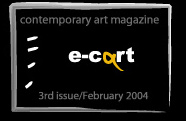 |
|
|
|||||||||||||||||||||||||||||||||
|
|
 |
 |
 |
|
|
|||||||||||||||||||||||||||||||
 |
 |
 |
|
|||||||||||||||||||||||||||||||||
|
|
|
|||||||||||||||||||||||||||||||||||
|
|
|
|||||||||||||||||||||||||||||||||||
|
|
 |
|
|
|
||||||||||||||||||||||||||||||||
|
|
|
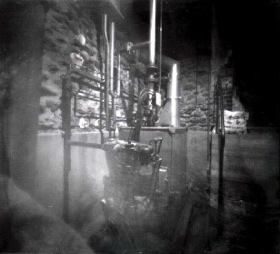 |
|
|
||||||||||||||||||||||||||||||||
|
|
 |
 |
|
|||||||||||||||||||||||||||||||||
|
|
 |
|
|
|||||||||||||||||||||||||||||||||
|
|
|
|||||||||||||||||||||||||||||||||||
|
|
 |
|
|
|||||||||||||||||||||||||||||||||
|
|
|
|||||||||||||||||||||||||||||||||||
|
|
 |
|
|
|||||||||||||||||||||||||||||||||
 |
|
|
|
|
|
|||||||||||||||||||||||||||||||
|
|
|
|
||||||||||||||||||||||||||||||||||
|
|
|
|||||||||||||||||||||||||||||||||||
| |
|
|||||||||||||||||||||||||||||||||||
|
|
 |
|
||||||||||||||||||||||||||||||||||
 |
|
|||||||||||||||||||||||||||||||||||
 |
|
|||||||||||||||||||||||||||||||||||
|
|
|
|
||||||||||||||||||||||||||||||||||
|
|
 |
|
|
|||||||||||||||||||||||||||||||||
 |
|
|
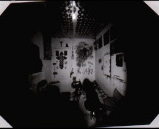 |
|
|
|||||||||||||||||||||||||||||||
|
|
 |
|
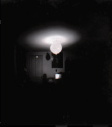 |
|
|
|||||||||||||||||||||||||||||||
|
|
 |
|
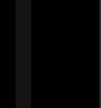 |
 |
|
|||||||||||||||||||||||||||||||
 |
|
|||||||||||||||||||||||||||||||||||
 |
 |
|
||||||||||||||||||||||||||||||||||
 |
|
|||||||||||||||||||||||||||||||||||
|
|
|
|
|
|||||||||||||||||||||||||||||||||
|
|
|
|
|
|
|
|
|
|
|
|
|
|
|
|
|
|
|
|
|
|
|
|
|
|
|
|
|
|
|
|
|
|
|
|
|
|
Eric Rodriguez is a student at the Paris
VIII, Saint- Denis University, in his 3rd year of study in the Visual Arts
field.
He also graduated from one of the preparatory schools that allow those who
haven't taken their high-school diploma in Arts to attend an artistic curriculum
in college.
Our on-line and in French conversation followed no ready-made plan and it
doesn't intend to complete an accurate image of the French high education
system in Arts - the discussion was led on by curiosity only.
So:
A. - The interview begins! Are you going to be 25 years old?
E. - What is this?
A. - We are going to talk about school. Only about school.
E. - All right then, I'm listening.
A. - Are you an artist, Mr. Rodriguez?
E. - No, thank God.
A. - Why are you attending an art college then? (Don't think for too long.)
E. - I study arts because I don't know anything about it, that's why: cause
I know nothing.
A. - Somehow like Socrates?
E. - Well, maybe!
A. - And what do they teach you in your art faculty?
E. - Pretty much theory but also practical things. Actually, I can choose
what I want to study.
A. - This is an important thing.
E. - It is.
A. - Would you say that they teach you the liberty of choosing?
E. - It could be that too. However, I believe that laziness is what leads
the students, but also the teachers. After all, it is easier for everybody
that the students chose what they want to study.
A. - You know that in Romania you don't have a choice. Everything has been
decided a long time before. This is also a convenient method, no trouble for
none of the parties involved.
E. - Could be. But at least you're more likely to be motivated if you choose
the courses yourself. Actually, here, at Paris VIII, it's a special situation.
We are "modern"!
A. - If you could choose between the Romanian system and your own, which one
would it be?
E. - This one here.
A. - Can you talk a little about your faculty?
E. - A little will be all right. What is it that you'd like to know?
A. - The name, the fields of study.
E. - Paris VIII, Saint-Denis. There are many fields.
A. - Only Arts are taught there?
E. - No, there are Arts, Audio-Visual, Philosophy, Literature, Economy and
more. During the first year of study, every student has to attend two courses
in a field other than his major.
A. - You said that you are modern, special.
E. - Yes, the faculty itself is new.
A. - In which way are you more modern then the others?
E. - The classes are more opened to modern and contemporary art. Sorbone,
for instance, is different in this regard.
A. - What is exactly what you study?
E. - Fine Arts.
A. - By Fine Arts you mean painting, sculpture?
E. - Not necessarily, Fine Arts generally speaking: painting, sculpture, conceptual
art, art theory, philosophy of art, aesthetics, art history, courses on exhibitions,
museums, history courses.
A. - And everybody has to attend all these courses?
E. - No, a certain number of classes must be attended to, on choice.
A. - So one could attend the painting and the sculpture courses at the same
time?
E. - Yes, you can do almost everything you want to, because there are a lot
of possibilities. You can use your time as you wish, you attend the courses
you choose to.
A. - There is not such thing as a curriculum in a standard form?
E. - There are several courses that all students must have, like Art History.
But even in this case the situation can be different, depending on the teacher.
A. - Especially the theoretical courses are for every student?
E. - Exactly, the theoretical subjects are compulsory. But, again, the content
is different, depending on the teacher. For example, in Art History it is
possible to study modern or ancient art.
A. - You don't have to study Art History completely, chronologically? You
can study only modern art?
E. - It's not specified that all Art History is compulsory, but there are
few cases in which students manage to "escape" from ancient art.
Especially in the first years.
A. - What does ancient art mean?
E. - During my first year I studied the Renaissance art.
A. - What about the Gothic?
E. - I had nothing on medieval art.
A. - Byzantine Art?
E. - Ha ha ha!
A - What is it?
E. - The curriculum for ancient art is not very accurate.
A. - What do you study then?
E. - We have a course on the perspective.
A. - Greek Art?
E. - I haven't seen any Greek!
A. - What is ancient art after all?
E. - We have mostly things that allow us to consider our own vision, to put
it into question, to develop a personal vision. At least I think so. Ancient
Art is everything before Modern Art. (However, you can have a M. D. without
having attended the Ancient Art course).
A. - Here, in Romania, Ancient Art is a little bit more than the Renaissance.
E. - Yeah, we are less cultivated! It's all about the luxury of laziness!
A. - (Yes, this is what European civilization is about.)
E. - There is a course on Chinese calligraphy that could be included in the
Ancient Art field, but it's not really Art History.
A. - Isn't all this lacking of organization?
E. - Sure it is! This is the good name of this college - very opened, very
permissive.
A. - Opened to what?
E. - To modernity, meaning contemporary, topically. Many people that are currently
in the arts world graduated from here. Actually, just those that have more
than a M.D., people involved in the gallery business, exhibitions, museums,
lecturers, professors. Only few artists. Most of them are people that talk
about art. Wearing glasses.
A. - After all, what is it that your faculty encourages?
E. - The topical subjects, the contemporary art, thinking by yourself and
in your own way.
A. - And from the ideological point of view?
E. - Very open-minded, permissive, no imposed things. It's good to have opinions
different from those of the teachers, for instance (on an exhibition, on an
idea); the teachers are very "cool", they are not trying to impose
anything else than the obvious.
A. - O.K., but if you don't have enough knowledge, how can you choose? In
a conscientious manner I mean.
E. - I suppose that the choice is made according to one's own desire.
A. - Is that a fact that originality exists in each and every one of us?
E. - Probably yes, more or less. Isn't it beautiful?
A. - It's enthusiastic, idealistic. Therefore beautiful, but not exactly realistic.
E. - Well, as long as you get a diploma, it's all right.
A. - It's true, we are talking about a rich country, what can happen? You
have spoken to me about some courses that go beyond imagination in Romanian
Universities.
E. - Like the one on the "conceptual translation" (fr. "deplacement
conceptuel")?
A. - What does "translation" mean?
E. - It is based on a free-chosen theme - there are some discussions on the
idea during the class then the students put it into practice as they want,
they decide on the materials, on the techniques to use. It's more of a practical
course.
A. - What exactly suffers the "translation"? The idea? The prejudice?
The ordinary?
E. - Something like that, yes. We have the choice on this one too. Somebody
made a recording of sounds produced by moving objects around.
Another "special course" is the one on "Book's History"
- "Les livres monstres", as the teacher named it. It is about the
"artist's book", but also on unusual books. For instance, there
is a book on how to kill a fly - very small book, in the shape of a box (the
way in which the book looks like is very important), another one gives us
excuses for not going to school (very useful one!). The professor talks about
professionals in the book industry, about "the world of books".
It is a very amusing course.
A. - He teaches you to love the books?
E. - To be sincere, I don't know what's the use of this course. I suppose
he teaches us that the humor is a part of the arts and that it could be a
serious thing.
A. - You had also a course on humor, hadn't you?
E. - Yes, taught by the same teacher (of Czech origin). Not a history of humor
in art, just studies on the works of some artists, from this perspective.
An example: Duchamp. Which leads us to the same idea: nothing complete. We
just get an "airplane view" of the whole thing, we focus on some
things rather than other.
In the same range I can also mention the course on the "displaced"
objects - pictures of objects used for different purposes than initially intended.
A. - What courses do you attend this semester?
E. - I'll try to remember all of them: "Plastique Acts: picturesque gesture,
plastique gesture", "Unusual points of view in photography",
"Moments of contemporary art", "Contemporary art and the internet",
"The exhibition, the institution and their criticism" , "3D
images".* That will be about all. They are interesting, all of them.
Actually, there are few theoretical courses.
We have also some traditional, conservative professors, but usually they get
avoided. You see…
A. - Of course, it's about the free spirit, isn't it.
E. - Anyway, those who would like to study the theoretical subjects, they
can do it on their own.
A. - After three years of college, are you spiritually enriched?
E. - Me?! I guess so, but I was already rich!
(…….several profane lines on the raising prices followed.)
A. - How will you describe your teachers?
E. - I don't know, different from one another, from all points of view. Some
of them are professors, some are just visiting professors, lecturers - for
example artists, professionals-like the one in photography. The painting teacher
is a painter himself, naturally. The one who teaches the critique course owns
an art center where he is in charge of the exhibitions.
A. - What do you do in your painting classes?
E. - We are developing our own manner of painting. The teacher works with
everyone of us.
A. - Do you learn things like technique, anatomy, proportion, perspective,
chromatics?
E. - None of those; it's not very technical or representative.
A. - Neither manners of painting, like the impressionist technique, for instance?
E. - No, it's more of an abstract painting. And as techniques - free painting.
A. - What do you paint?
E. - Nothing figurative.
A. - Some subjects are imposed or do you choose your own thing to paint?
E. - Everybody paints what he wants, but the subjects are given to us by the
teacher. The main idea is to make some progress in our personal manner of
work. The students choose techniques, materials, types of composition, of
representations and they develop them gradually, in time.
A. - Is the painting still in fashion?
E. - No, not really.
A. - What is in fashion then?
E.. - The audio-video.
A. - Movies, videos.
E. - Yes, videos, animation.
A. - It's about high technology?
E. - It is, but this is not the main issue here. Technology is only the way
to illustrate, to materialize a concept.
A. - Has art become a concept?
E. - Yes, an idea. A meaning must be found in it.
A. - Is this about the power of reason?
E. - It's about the power of image.
A. - The TV watchers generation are making videos?
E. - Many things are done in this field. The video- projections in exhibitions
are watched by few people - the professionals only, the ordinary people don't
bother to do it. I believe it's an art for the artists and critics. And I
am not the only one to believe that. And it is very expensive too (if we were
talking about the flat screens, for example).
A. - Do you think that a person without an artistic education prefers painting?
E. - I think that the meaning is looked for, and it's easier to find a meaning
in a painting.
A. - Isn't beauty worth anything anymore?
E. - Not really.
A. - Fine Arts don't exist anymore?
E. - Of course not!
A. - We have lost our taste for beauty or have we gained the taste of technology?
E. - Beauty is everywhere. I think there is too much art, so we are looking
for something new.
A. - What do the students prefer?
E. - Comic books have a lot of success, the technique of comic books.
A. - Does it pay a lot?
E. - No, it's "a limited access area".
A. - What are the students like?
E. - There are all kinds of students: lazy students (lots of them), diligent
students, "connaisseurs", not connaisseurs at all etc. Everybody
can go to college in here. (I like the sensitive students, in the laziness
department!)
A. - What do you like most in art?
E. - Painting.
A. - Classical painting?
E. - No, dirty painting.
A. - And what do you actually do (besides going to school)?
E. - Painting and photographs.
A. - Why?
E. - For the tranquility, the concentration, for the sake of discovering.
Taking photographs is surprising and amusing and the results are always unique.
A. - What is the painting?
E. - I don't know! I am not a philosopher! It's material.
A. - And the photograph?
E. - Also material!
Photographs taken in graveyards at: http://membres.lycos.fr/eric1246/
* "Actes plastiques: geste pictural, geste plastique", "Perspectives
curieuses en photographie", "Moments d'art contemporain", "Art
contemporain et internet", "L'exposition, l'institution et leur
critique", "Images tridimentionelles".
Alis Vasile
Translation from French: Alis Vasile
|
|
|
|||||||||||||||||||||||||||||||||||
|
|
 |
|
|
|||||||||||||||||||||||||||||||||
|
|
 |
 |
 |
|
|
|||||||||||||||||||||||||||||||
 |
 |
 |
|
|||||||||||||||||||||||||||||||||
|
|
|
|||||||||||||||||||||||||||||||||||
|
|
|
|||||||||||||||||||||||||||||||||||
|
|
 |
|
|
|
||||||||||||||||||||||||||||||||
|
|
|
 |
|
|
||||||||||||||||||||||||||||||||
|
|
 |
 |
|
|||||||||||||||||||||||||||||||||
|
|
 |
|
|
|||||||||||||||||||||||||||||||||
|
|
|
|||||||||||||||||||||||||||||||||||
|
|
 |
|
|
|||||||||||||||||||||||||||||||||
|
|
|
|||||||||||||||||||||||||||||||||||
|
|
 |
|
|
|||||||||||||||||||||||||||||||||
 |
|
|
|
|
|
|||||||||||||||||||||||||||||||
|
|
|
|
||||||||||||||||||||||||||||||||||
|
|
|
|||||||||||||||||||||||||||||||||||
| |
|
|||||||||||||||||||||||||||||||||||
|
|
 |
|
||||||||||||||||||||||||||||||||||
 |
|
|||||||||||||||||||||||||||||||||||
 |
|
|||||||||||||||||||||||||||||||||||
|
|
|
|
||||||||||||||||||||||||||||||||||
|
|
 |
|
|
|||||||||||||||||||||||||||||||||
 |
|
|
 |
|
|
|||||||||||||||||||||||||||||||
|
|
 |
|
 |
|
|
|||||||||||||||||||||||||||||||
|
|
 |
|
 |
 |
|
|||||||||||||||||||||||||||||||
 |
|
|||||||||||||||||||||||||||||||||||
 |
 |
|
||||||||||||||||||||||||||||||||||
 |
|
|||||||||||||||||||||||||||||||||||
|
|
|
|
|
|||||||||||||||||||||||||||||||||
|
|
|
|
|
|
|
|
|
|
|
|
|
|
|
|
|
|
|
|
|
|
|
|
|
|
|
|
|
|
|
|
|
|
|
|
|
|